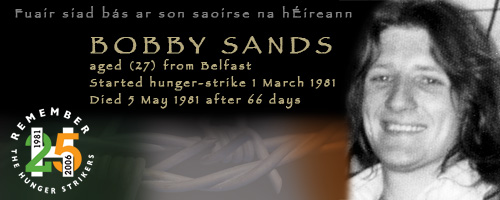
|
|
"Robert McBride, former political prisoner and member of the African National Congress, said as an outside he was independent but he was not neutral on the issue of Ireland’s centuries old struggle. “My background is one of struggle against imperialism, colonialism, discrimination and oppression. From a conceptual point of view as a person involved in struggle, I can never accept the idea of a foreign government maintaining control of another country. The very rightness of the republican aspiration will ensure the ending of occupation,” said McBride."